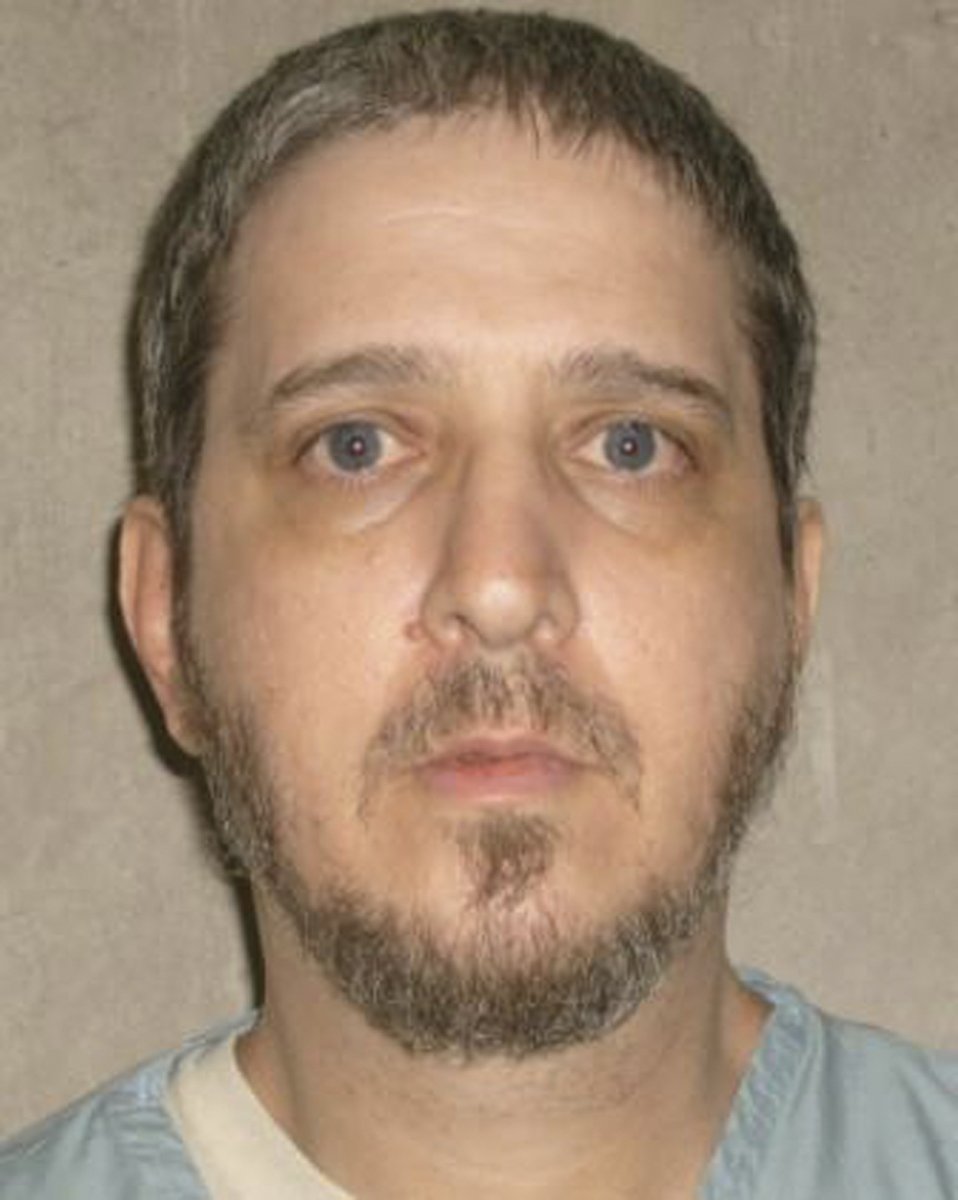
WASHINGTON — Immediately after the Oklahoma attorney general asked a state appeals court to vacate the sentence of Richard Glossip, a prisoner who had been on death row for nearly 25 years, Sister Helen Prejean tweeted the news.
The Sister of St. Joseph and longtime opponent of the death penalty has been advocating on Glossip’s behalf for years. She has visited him in prison and has been scheduled to accompany him to his execution, which has been postponed several times. She has also urged people to write to Glossip in prison, saying he is “innocent and could use your support.”
Attorney General Gentner Drummond filed a motion on April 6 with the Court of Criminal Appeals in Oklahoma requesting a new trial for Glossip based on the release of a special counsel’s report. Glossip is scheduled for execution on May 18.
“While the State has previously opposed relief for Glossip, it has changed its position based on a careful review of the new information that has come to light,” he wrote in the motion.
In an April 6 press release, Drumond said he “cannot stand behind the murder conviction and death sentence” of Glossip based on the new report.
He did not go as far as to say that Glossip was innocent but instead said it is “critical that Oklahomans have absolute faith that the death penalty is administered fairly and with certainty.”
“Considering everything I know about this case, I do not believe that justice is served by executing a man based on the testimony of a compromised witness,” he added.
Glossip, a 60-year-old former motel manager, was convicted of the 1997 murder of his boss, Barry Alan Van Treese, at the Best Budget Inn in Oklahoma City.
A bipartisan group of state lawmakers commissioned the Houston law firm Reed Smith to investigate Glossip’s case, and last year it published a 343-page report that revealed a faulty police investigation and the state’s intentional destruction of evidence.
The report drew attention to Justin Sneed, the motel handyman, who is serving a life sentence after pleading guilty to beating Van Treese to death with a baseball bat in 1997 at the hotel. Sneed testified that he killed Van Treese after Glossip, the motel manager, promised to pay him $10,000. The report said Sneed had asked several times about recanting his testimony.
Glossip’s attorneys claim Sneed killed Van Treese during a botched robbery for drug money and claim he framed Glossip to avoid getting the death penalty.
Since the report was issued, the law firm and Glossip’s attorney have uncovered more evidence, including letters Sneed wrote in prison.
Krisanne Vaillancourt Murphy, executive director of Catholic Mobilizing Network, the national Catholic organization working to end the death penalty, told The Tablet in an April 7 email that she was encouraged by the request to vacate Glossip’s conviction and grant him a new trial.
“Glossip’s case embodies so much of the brokenness within the death penalty system,” she said, noting that it highlights the serious risk of wrongful conviction and the death penalty’s arbitrariness since Glossip’s co-defendant received a life sentence.
She also said Glossip’s case “lays bare the unbelievable cruelty of capital punishment” since he faced multiple execution dates over the years. His scheduled execution in 2015 was called off at the last minute because the wrong lethal injection drugs were ordered.
“Even setting aside the undeniable problems in Mr. Glossip’s case and Oklahoma’s death penalty system more broadly, we must not forget that capital punishment in all cases is a violation against the sanctity of life. There is no more poignant time than Holy Week to bear this in mind — a time when we lament Jesus’ own unjust death sentence and execution,” Vaillancourt Murphy said.
A few years ago, Glossip was the lead plaintiff in a failed federal lawsuit challenging Oklahoma’s use of lethal injections.
Catholic leaders expressed disappointment with the federal judge’s ruling in 2021 that said the state’s three-drug lethal injection method was constitutional.
After that ruling was announced, Archbishop Paul S. Coakley of Oklahoma City reiterated his anti-death penalty position, saying: “No matter the decision of the court on Oklahoma’s protocol, the use of the death penalty only contributes to the continued coarsening of society and to the spiral of violence.”
He added that “taking another life does not ultimately bring closure and peace to those who have lost a loved one, and it goes against the principle of valuing life.”
